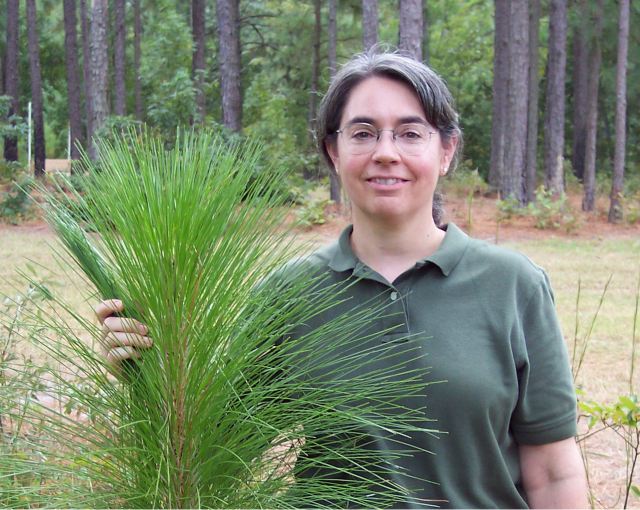Meet EPA Researcher Elizabeth (Betsy) Hilborn, RN, DVM, MPH, Dipl. ACVPM
Dr. Hilborn has worked as a health scientist and epidemiologist at EPA for more than 20 years. She is a nurse, a veterinarian, and has a master’s degree in public health and is Board Certified in Veterinary Preventive Medicine.

When did you first know you wanted to be a scientist?
I have always been interested in science and fortunately, my parents encouraged me to pursue this interest. They provided me with a chemistry kit, a microscope, and a camera, and I persuaded them to allow me to keep many unusual pets. I wanted to be a vet from a young age, but I took an indirect route to veterinary college and environmental public health. I became a Registered Nurse to provide myself a better income as I worked my way through school. I was able to synthesize these experiences in human and veterinary clinical medicine to prepare myself for a career in Federal public health practice.
How does your science matter?
I investigate the health effects of emerging contaminants, primarily waterborne contaminants. Investigating the health effects of water quality is fascinating as water is the universal solvent, so many contaminants and mixtures of contaminants end up in water. My work focuses on understanding how human illness is associated with environmental exposures which can be challenging to investigate as peoples’ exposure to the environment is modified by their behaviors and resources.
What is the impact you hope to have through research on communities?
I focus on some of the consequences of water pollution such as harmful algal blooms that can have measurable adverse health impacts. I seek to maintain a One Health perspective, where the health of people and animals are evaluated in a holistic manner. The Centers for Disease Control and Prevention says that, “A One Health approach encourages collaborative efforts of many experts (like disease detectives, laboratorians, physicians, and veterinarians) working across human, animal, and environmental health to improve the health of people and animals, including pets, livestock, and wildlife.”
What do you like most about your research?
I love my work because I have the opportunity to use all of my training – environmental health science, epidemiology, veterinary medicine, biology, and nursing.
What do you think will be the biggest scientific challenge in the next 20/50/100 years?
I think that our biggest scientific and societal challenge will be to learn to live more sustainably so that we can continue to have a decent quality of life well into the future.
Any advice for students considering a career in science?
I encourage young scientists to develop an area of deep competency and then to purposefully become accustomed to working somewhat outside of their comfort zones. People grow by pushing boundaries and exploring new topical areas and methods. Innovative scientific approaches can occur while working with scientists from other disciplines.
You are stranded on a desert island with a community of other survivors, what would your job be?
I would be feeding people; I would cultivate plants for food and raise animals for the community!
